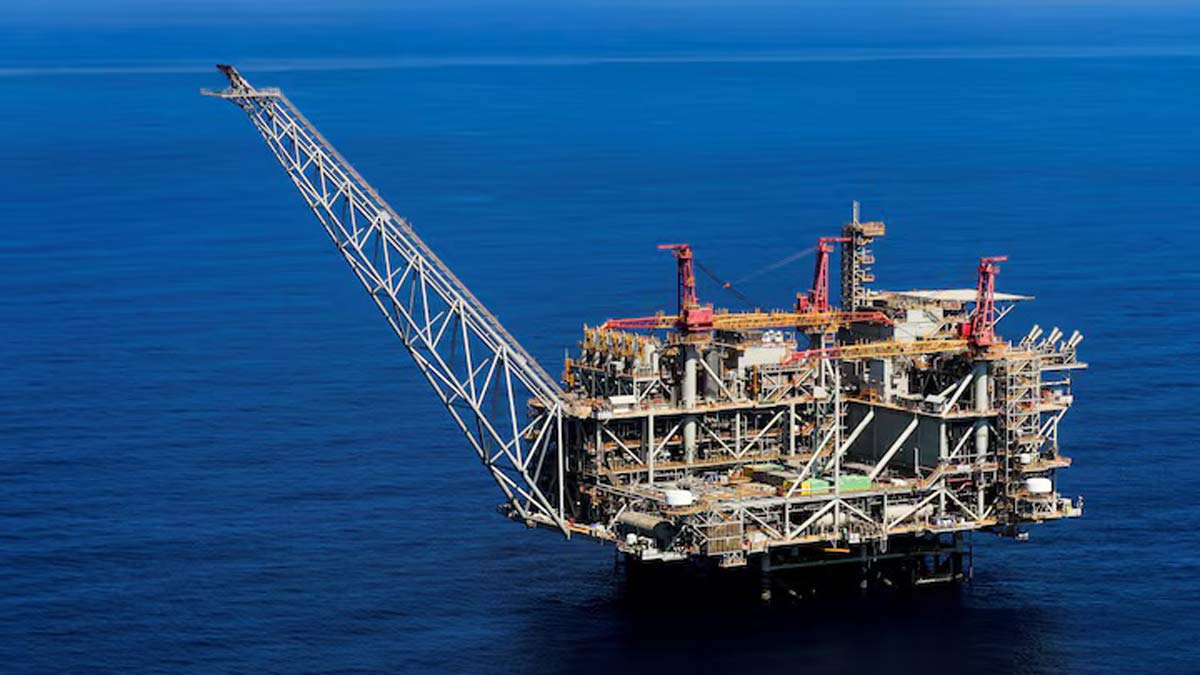Why Israel stalled USD 35 bn gas deal with Egypt and what it means for Middle East

United States Energy Secretary Chris Wright cancelled his planned six-day visit to Israel on Friday after Energy Minister Eli Cohen declined to approve a major gas export agreement with Egypt. The deal, first signed in August, involves exports from Israel’s Leviathan gas field valued at USD 35 billion and represents the largest energy export agreement in Israel’s history.
Cohen’s refusal to sign the agreement has already caused diplomatic ripples. According to his office, American officials had been applying considerable pressure on Israel to finalise the transaction. The United States has a direct interest in the deal, as it is lobbying on behalf of Chevron, one of the co-owners of Leviathan, Israel’s primary offshore gas source.
The Israeli minister presented his position as a matter of national commercial policy, explaining that he would not give approval “until Israeli interests are secured and a fair price for the Israeli market is agreed upon”. His decision has temporarily frozen progress on the deal. However, sources familiar with the negotiations have suggested that the core issue lies within Israel itself, rather than between Israel and Egypt. The dispute is understood to involve the domestic pricing policy of NewMed Energy, the Israeli company responsible for the Leviathan project, and the rates it wishes to charge local consumers.
Despite the ministerial impasse, NewMed stated that there had been no change to the agreement and that it expected to receive the necessary authorisations shortly. Nonetheless, Cohen’s stance risks worsening relations not only with the United States but also with Egypt, both of which are key intermediaries in the fragile ceasefire between Israel and Hamas. The decision comes at a politically sensitive time, amid renewed regional tensions and accusations of violations of the Camp David Accords. Egyptian President Abdel Fattah al-Sisi has accused Israel of committing genocide in Gaza and recently described Israel as “the enemy of the region”. Cohen himself has publicly called for the destruction of Gaza’s main cities, deepening the sense of crisis.
The agreement at the centre of the dispute, signed in August, aims to expand gas exports from Israel’s Leviathan field to Egypt. If fully implemented, it would nearly triple the volume of gas currently exported from Leviathan to Egypt. Under the terms, NewMed would supply an additional 7.5 billion cubic metres of gas annually by 2029. Much of this would flow through a new undersea pipeline, with NewMed investing around USD 2.5 billion in drilling two new wells to meet the increased demand.
The Leviathan field lies roughly 130 kilometres off Israel’s northern coast in the Mediterranean Sea and contains an estimated 600 billion cubic metres of natural gas, which could last until at least 2064. It offers a lifeline for Egypt which is facing an escalating energy shortage because of rising demand and stagnant domestic gas production. At present, around 60 per cent of Egypt’s gas imports come from Israel. Last year, disruptions at Leviathan during regional hostilities led to widespread power shortage across Egypt.
Cairo cannot ignore the fact that the Israeli supplies are significantly cheaper at around USD 7.75 per million British thermal units, while the LNG purchased on the spot market costs around USD 13.50. The savings from relying on Israel goes a long way in helping Egypt manage inflation, deal with its balance-of-payments concerns, and clear dues with global energy firms.
Yet, there is a political downside to it. Commercial deals with Israel are unpopular in Egypt because of the support for the Palestinian cause. Nevertheless, Egyptian policymakers view this dependency as a temporary necessity while the country works towards energy diversification. Cairo is finalising an LNG import deal with QatarEnergy and expects to begin receiving gas from Cypriot fields such as Cronos and Aphrodite by 2027 or 2028. These new sources could eventually supply up to 1.3 billion cubic metres per day. Egypt is also attracting record investment from Gulf and European partners in large-scale solar and wind projects, which are intended to meet a 40 per cent renewable energy target by 2040.
For Israel, the deal is crucial to its long-term ambition of becoming a regional energy power and of binding neighbouring states such as Egypt and Jordan into mutually beneficial economic partnerships. Domestic critics argue that Israel should have secured greater concessions, beyond a modest 14 per cent price increase, yet the strategic importance of the deal outweighs such concerns. A recent report warned that Israel may face domestic gas shortages within the next 25 years unless it expands production, which in turn depends on export revenues. Without Egyptian demand, Israel could lose one of the few large-scale markets capable of sustaining that expansion, undermining what officials have described as an “anchor of its regional security architecture”.
Middle East